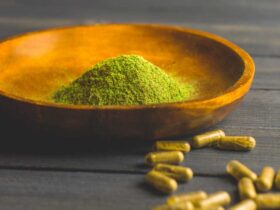CBD has skyrocketed in popularity in the past few years. Many people are turning to it as a supplement for their mental and physical well-being. CBD has also become widely available, whereas just a few years ago it was a specialty product.
But there are a lot of misconceptions that people still have about CBD. One of the biggest ones is the actual effects that CBD has on your body and mind. We’re here to set the record straight on CBD.
If you’re wondering, “what does CBD feel like?” we’ve put together a guide on what to expect when you take CBD products. Read on for more!
What Is CBD?
CBD stands for cannabidiol, which is one of many cannabinoid compounds found in the marijuana plant. Cannabinoids are what give marijuana its potency, and each cannabinoid acts on your brain in different ways.
This is due to the way cannabinoids interact with our endocannabinoid system. Did you know that humans and many other mammal species actually make our own cannabinoids within our brains?
These bind to receptors in the endocannabinoid system and have various effects, such as producing more dopamine, serotonin, and pain-blocking signals.
CBD is one of the most well-known cannabinoids. It modifies our endocannabinoid receptors to better bind to other compounds, either in marijuana or from within our own bodies.
This actually makes CBD an excellent therapeutic treatment for many ailments, as it allows our bodies to produce and use more of the “good stuff.”
It is well-known for its positive effects on pain management, anxiety and stress, and even nausea.
To get the most out of your CBD, we recommend searching for a full-spectrum product. These are products that contain a number of other cannabinoids, including trace amounts of THC.
Because CBD amplifies the effects of other cannabinoids, full-spectrum products are reported to be much more effective and stronger than isolated CBD.
Cannabinoids all play off of each other in something called the “entourage effect.” This is the interaction between all the different cannabinoids, where some cancel out the bad effects (like anxiety), while amplifying the feel-good ones.
It is best to take advantage of the entourage effect with your CBD products for the most efficiency. There are various blends that work best for things like anxiety or pain management, as well, so you can target exactly what you need.
What Does CBD Feel Like?
We’ll just get this out of the way now: CBD does not get you “high.” There’s no stoned feeling or any psychedelic effects. These are associated with higher amounts of THC, which is the main cannabinoid in recreational marijuana.
While some CBD products contain trace amounts of THC, you will likely still not notice any intoxicating effects. THC in small amounts simply amplifies the effectiveness of CBD and other cannabinoids.
Another misconception about CBD is that it works immediately. Because it is adaptogenic (meaning that it works in your brain over time to help it make more feel-good chemicals), CBD actually takes some time to build up in your system.
This means that you might have to take CBD products for a week or more before you start to notice the effects. Treat CBD like any other dietary supplement, and take it consistently to get the most out of it.
But if you’re new to CBD, you’re probably wondering, “What does CBD feel like?” Everyone’s experiences vary a little, but there are some general effects of CBD that are well-documented.
Mental Effects of CBD
Most CBD users say that CBD produces a calming, relaxing effect that comes on gently and lasts for quite some time. Some report a feeling of their anxiety and stress simply dissipating.
CBD is very popular for general mood uplifting, as well. Like adding a good vitamin regimen to your daily supplement, CBD boosts the production of the feel-good chemicals serotonin and dopamine, giving your mood a boost throughout the day.
People with mood disorders such as depression, anxiety, and PTSD often report that CBD helps them immensely with their quality of life.
Finally, CBD can also help increase focus. Whether you have attention deficit disorder or a case of post-lunch drowsiness, CBD can help your concentration and mental sharpness.
Physical Effects of CBD
For pain management, many users cite CBD as helping immensely with inflammatory issues such as arthritis, tendonitis, and scar tissue irritation. CBD has even been used to manage inflammatory skin conditions such as psoriasis and cystic acne!
CBD is also often used to treat nausea and other stomach issues. Marijuana is well-known for its appetite increase, and CBD is one of the main culprits in “the munchies.”
But CBD is incredibly valuable for people undergoing treatments such as chemotherapy, or even for managing simple travelling sickness.
CBD is even used in the management of blood sugar levels and bone density. Studies show that it aids in insulin production, as well as increased production of bone cells.
Side Effects of CBD
There are a few side effects associated with taking CBD products, but not everyone will experience them and they are generally mild while your body adapts.
These include dry mouth, increased appetite (which can be a positive in some cases), feeling sleepy, and sometimes stomach upset.
Forms of CBD
Because the CBD market has grown so rapidly, consumers now have a variety of choices in how they consume CBD and can even buy targeted blends for specific issues such as anxiety or pain management.
One of the first and most popular forms of CBD is oils. These are usually taken sublingually or mixed into food or drink.
Vaping CBD with an electronic cigarette is also a popular option, with flavored juices and different blends making it easy to switch back and forth during the day, depending on your needs.
Other CBD products like magicweed.amsterdam include edibles, topical ointments, and even dry flower that looks and smokes or vaporizes like recreational marijuana.
CBD: The Final Word
Always consult with your physician before adding any new supplement to your daily regimen. CBD is well-tolerated with few side effects for most, although people sensitive to THC might avoid full-spectrum products that contain trace amounts.
Feel free to contact us at any time with any questions or concerns, as well!











